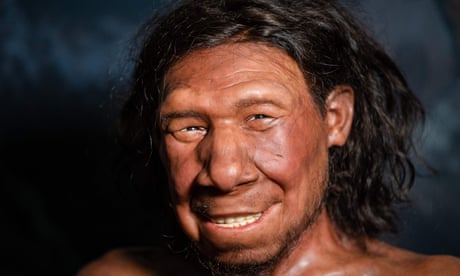- by foxnews
- 03 Apr 2025
Revealed: modern humans needed three tries - and 12,000 years - to colonise Europe
Revealed: modern humans needed three tries - and 12,000 years - to colonise Europe
- by theguardian
- 08 May 2023
- in news

It took three separate waves of modern humans to colonise Europe between 54,000 and 42,000 years ago. That is the key conclusion of scientists who have been studying caves in the Rhone valley where they have discovered evidence that Homo sapiens had to make a trio of determined attempts to head westwards and northwards from western Asia before they could establish themselves in the continent.
"The first two of these waves failed but the third succeeded around 42,000 years ago," said Ludovic Slimak of the University of Toulouse, who is leading the excavations in France. "After that, modern humans took over in Europe. The Neanderthals, who had evolved on the continent, died out."
The group's research, published in the journal Plos One, is controversial because it implies that our species settling in Europe took around 12,000 years to complete. Far from being a rapid takeover, modern humans' transition into the continent was a lengthy affair involving travel along the Mediterranean before our ancestors headed northwards up the Rhone valley.
Crucially, these tools, which are distinctive for their elegant, slender blades and sophisticated construction, have since been attributed - by many but not all scientists - to Neanderthal tool-makers. These researchers argue that the tools show that Neanderthals were capable of advanced tool manufacture and complex behaviour.
However, after a period of around 40 years, this first group of modern human incomers disappeared from the fossil record and the site was subsequently re-occupied by Neanderthals. If our ancestors were better equipped, why did this first intrusion into Europe end this way? Similarly, why did the second wave - which probably occurred around 44-46,000 years ago - also end in failure?
One answer is straightforward, says Slimak. Those early waves of humans simply lacked numbers. He believes there were up to 100 men, women and children in the Grotte Mandrin settlement. "That may not have been sufficient to maintain their biological strength and perhaps they could not exchange genes with local Neanderthals because the fertility between them was poor," he added.
However, he rejected the idea that relations between Neanderthals and modern humans were poor. In fact, every indication suggests that the two groups were on good terms.
Then came the third wave, and this time it seems that our ancestors did have the numbers, Slimak added. "The third time they came in, modern humans did so with a really huge wave of people and began to build social networks, not with Neanderthals but with individual small separate groups of Homo sapiens in order to build a huge network throughout Europe. And in the end, that is what started the decline of the Neanderthals in Europe."
- by foxnews
- descember 09, 2016
Flight passenger says man deliberately squatted in window seat, ignites social media debate
An airline flyer said a seat squatter tried to tell her to swap seats with him, but she stood her ground, prompting a social media debate. A travel expert weighs in.
read more


